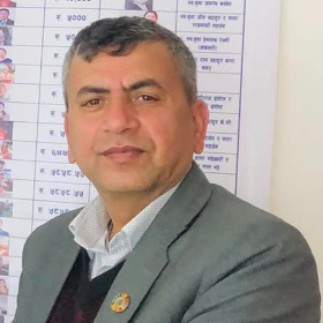Opinion
Going somewhere
Migration can be a positive force for development when assisted by the right policy
Jhabindra Bhandari
Migration, with its growing scope and complexity, is largely both a cause and effect of broader development processes and an intrinsic feature of our ever globalising world. Therefore, migration has been included in the 2030 Sustainable Development Agenda for the first time. Over the years, it has been experienced that migration can be a positive force for development when supported by the right set of policies. A rise in global mobility and growing complexity of migratory patterns and their impact on countries, migrants and their families have all contributed to international migration. Demand for labour migrants is huge, especially in the Gulf Cooperation Council countries and Malaysia. Nepali labour migrants have obtained permits to work in as many as 142 countries. Many youths fly to these countries for employment.
Roadmap for progress
There are several international and regional initiatives in place to advance migration governance at large. In September 2016, heads of state and government came together for the first time to discuss, at the global level within the UN General Assembly, issues related to migration and refugees. By adopting the New York Declaration for Refugees and Migrants, 193 UN member states recognised the need for a comprehensive approach to human mobility and enhanced cooperation at the global level and pledged to protect the safety, dignity and human rights and fundamental freedoms of all migrants, regardless of their migratory status.
From the regional perspective, the Colombo Process which is presently chaired by Nepal, is a regional consultative process on the management of overseas employment and contractual labour for countries of origin in Asia. This will help identify regional issues and priorities associated with labour migration and provide a strategic roadmap for action. For labour sending countries in Asia, labour migration represents both significant opportunities for national growth and challenges to secure safe employment for their workers. Many countries in the region are increasingly engaged in protecting their migrants from exploitative practices in recruitment and employment besides providing them appropriate services in order to reduce their vulnerabilities in the country of origin and destination.
Towards this end, Colombo Process member states also recognise the great need for optimising the benefits of organised labour migration, including developing new markets, increasing remittance flows through formal channels, building institutional capacity and inter-ministerial coordination, increasing cooperation with destination countries and preventing irregular migration.
Similarly, the Abu Dhabi Dialogue is a collaborative approach to address labour mobility in Asia. This largely focuses on developing and sharing labour market trends, skill profiles, remittances and overall relationship to development. This aims to address illegal recruitment and promotion of protection measures in both source and destination countries. Additionally, South Asian Association for Regional Cooperation (Saarc) countries have made some remarkable efforts to ensure the safety and wellbeing of migrant workers in destination countries.
Safeguarding migrants
More importantly, there is a commitment to strengthen governance of migration by developing a Global Compact for Safe, Orderly and Regular Migration (GCM). The GCM primarily intends to address all aspects of international migration, including humanitarian, developmental, human rights-related and other aspects, and make an important contribution to global governance and enhance coordination in international migration. As part of consultations on the GCM, the Ministry of Labour and Employment recently convened a series of consultations with Colombo Process member states, governments, civil society, development partners, private sector, academia and the media to identify country-specific priorities and challenges associated with migration. These consultations have been instrumental in articulating specific challenges, opportunities and ways forward.
The Colombo Process will significantly contribute to the current GCM preparatory process and negotiations by identifying common issues and priorities associated with migration in the region. The key thematic areas identified by Colombo Process member states are skills and qualification recognition process, ethical recruitment, pre-departure orientation, remittances and labour market analysis. The GCM mainly seeks to set a range of principles, commitments and understandings regarding all dimensions of international migration, and present a framework for comprehensive cooperation to advance migration governance at large. More importantly, this is guided by Sustainable Development Goals (SDGs), and hence will result in actionable commitments with a framework for implementation and follow-up.
Multi-stakeholder consultations have identified priority issues of protection and promotion of human rights which importantly recognises inclusion of migrants in host societies. Sometimes, there is evidence of discrimination against migrants and their families. Their access to basic services has also been limited. On the other hand, it is also important to ensure the obligation of migrants to host countries. Therefore, there is an emerging need to enhance migration governance as it primarily aims to advance international standards and fulfilment of migrant rights by engaging a range of partners to address migration-related issues. In any case, the purpose is to ensure that migration takes place in a safe, orderly and dignified manner. In this context, international cooperation needs to be further strengthened to advance the socio-economic wellbeing of migrants and their families.
Over the years, both government and civil society organisations have been identifying issues of irregular migration and its creeping impact on the lives of migrants and their families. The promotion of labour rights and a safe environment for migrant workers in the destination countries will lead to regular pathways for safe migration.
Undoubtedly, political leadership and commitment is key to ensuring effective implementation of labour migration-related policies and plans.
Bhandari is a PhD candidate at Chulalongkorn University, Thailand




 21.3°C Kathmandu
21.3°C Kathmandu










